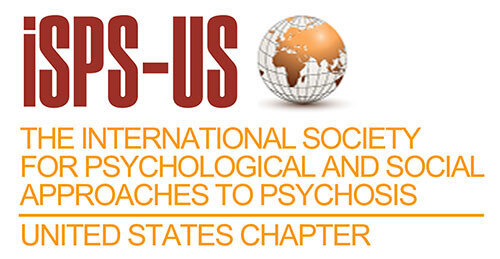
ISPS-US's Executive Director, Leah Giorgini, is quoted in this new article from our friends Mad in America about the WHO Mental Health Guidance Launch event earlier this month.
Leah said "in the United States, we are particularly facing a rise in coercive practices with people diagnosed with psychosis, especially those who are homeless. More and more policies target these individuals and laws are being put into place to force people into involuntary treatment. The social fabric of America’s lack of welfare and support is not addressed. We at ISPS-US uphold this guidance’s demand for rights-based treatment and a focus on social determinants and supports.”
Article Excerpt:
New WHO Guidance Calls for Paradigm Shift in Mental Health Policy
The guidance emphasizes shifting away from institutional mindsets and practices, the biomedical approach, and the use of psychotropic drugs. By Leah Harris
On March 25, the World Health Organization published a 44-page document, Guidance on Mental Health Policy and Strategic Action Plans, that reflects the ongoing work of global activists who have fought for a paradigm shift in mental health. The publication was WHO’s first comprehensive mental health guidance it has issued in 20 years, and it puts human rights at the center of its call for fundamental changes in global mental health policies.
Within the last 20 years, the advocacy of disabled people and psychiatric survivors led to the adoption of the historic Convention on the Rights of Persons with Disabilities (CRPD) at the United Nations. The guidance also acknowledges that the last decade and a half has seen emerging perspectives that reflect a “shift from a primarily biomedical focus toward approaches that are more person-centered, recovery-oriented, and grounded in human rights.”
WHO launched its new guidance on March 25, with the online event featuring WHO officials, ministers of global health, persons with lived experience, and other experts, many of whom acknowledged the gap between the vision reflected in the new guidance and the on-the-ground realities in many parts of the world.
“Mental health systems are outdated, underfunded, and misaligned with evidence-based practices and human rights standards,” WHO Director-General Tedros Adhanom Ghebreyesus said in his opening remarks. “As a result, many people suffer due to inadequate care, exclusion, and lack of access to the support they need.”
The guidance highlights the discrepancy between many countries’ stated commitments to achieving human rights-based mental health systems, and their widespread failure to implement needed reforms and reallocation of resources. Michelle Funk, head of WHO’s Policy, Law and Human Rights Unit for Mental Health and Substance Use and co-author of the guidance, told the online audience of over 2,000: “Today we stand at a pivotal moment in our journey to transform mental health systems globally. This is not just another event. It’s a call to action.”
A Holistic Approach to Mental Health Reform, Grounded in Social Justice
The WHO guidance is organized into five policy areas in need of urgent change: leadership and governance, service organization, workforce development, person-centered interventions, and addressing the social and structural determinants of mental health. The guidance encompasses a menu of policy directives across these areas that can be tailored to specific contexts, as well as country case scenarios and a comprehensive directory of policies and strategies.
One of the overarching themes in the guidance is “safe, planned deinstitutionalization.” “Rather than simply closing institutions, the guidance provides a roadmap for transitioning to strong community care systems,” Funk said.
The WHO guidance notes that merely shifting to a community-based system of care is insufficient. “Smaller community services can also replicate these violations, acting as mini-institutions,” the document states. The guidance emphasizes that systems and services should focus on “comprehensively eliminating institutional mindsets and practices.”
Another focus is supporting countries to eliminate coercion and abuse through systemic reforms, as well as upholding individuals’ legal capacity and decision-making rights. “This isn’t just aspirational,” Funk emphasized. “The guidance proposes concrete steps to eliminate coercive practices, involuntary treatment, and promote more generally rights-based approaches.”
Strategies include the use of financial incentives such as insurance reimbursements to implement care that avoids coercion.
Funk also underscored the guidance’s emphasis on the meaningful inclusion of people with lived experience in decision-making and policy making, ensuring that “reforms are grounded in real-world needs.”
The guidance outlines recommendations for increasing the representation and participation of directly impacted people, such as drafting collaborative standards, creating financial incentives such as equal compensation for lived experience, developing opportunities for professional development, and establishing leadership positions in training and research.
Further, the new guidance advocates for shifting away from “historic overreliance on the biomedical approach and psychotropic drugs.” Ahmed Hankir, a psychiatrist and expert by lived experience who co-facilitated the discussion, noted that the WHO guidance is not “against” the prescribing of psychiatric drugs per se. “What we are against is the prescribing of powerful psychiatric drugs when it isn’t necessary, and for longer than necessary, and in higher doses than necessary,” he said, reflecting on his own “terrible experience” with metabolic syndrome.
“Our threshold for prescribing psychiatric drugs shouldn’t be so low,” he said. “There’s so much that we can do before we get that prescription pad out.”
The guidance also emphasizes cross-sector collaboration to advance the social determinants of health: “By addressing broader social and structural determinants — such as poverty, housing insecurity, unemployment, and discrimination — and emphasizing multi-sectoral collaboration, the guidance promotes a holistic approach to mental health reform, advancing equity and social justice.”
Each section includes considerations for diverse groups including “children and adolescents, older adults, women, men and gender-diverse persons, the LGBTQI+ community, disabled people, migrants and refugees, persons from minoritized, racial and ethnic groups, Indigenous Peoples, and persons who are houseless or with unstable housing,” noting that “due to unique characteristics, life circumstances, or unmet needs, these groups may require specific support and attention beyond that of the general population.”
Read the full article on Mad in America here.
